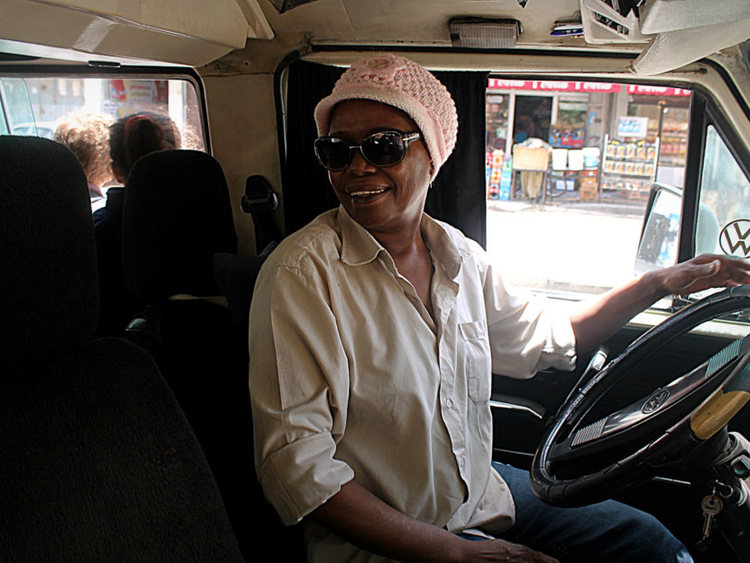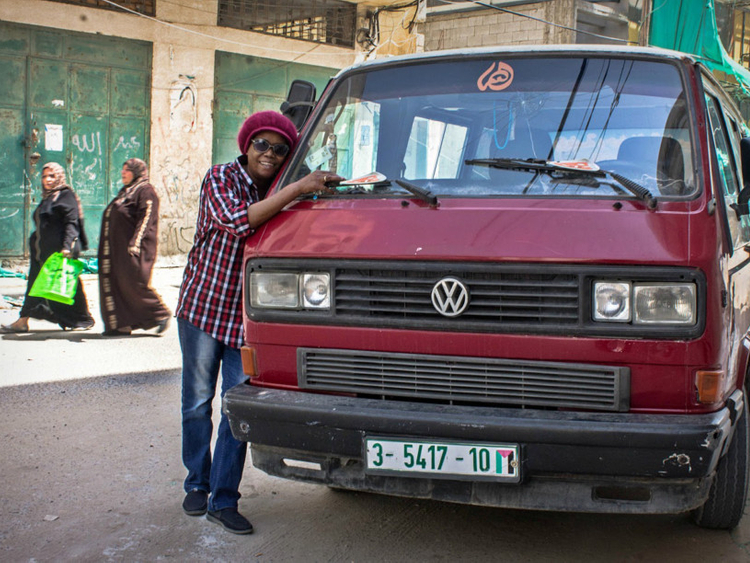
Gaza: In one of the most conservative and patriarchal societies in the world, many women are deprived of a basic human need — the ability to earn an independent living — not only because of the crippling Israeli blockade but also because of male hegemony.
However, some women are defying the odds by doing jobs normally only held by men.
Salwa Srour, 63, who runs her own private school for children in Gaza City, is one of these women.
She is Gaza’s first and only female bus driver.
Each day at 6:30am, she drivers through the city streets, picking up students who attend the kindergarten she owns with her sister.
Not accustomed to seeing a woman driving a bus, the kids called her ‘Uncle Salwa’ at first.
“It didn’t bother me, I was amused,” she told Gulf News.
“I am happy being a woman who does a job only men do.”
According to the Palestinian Central Bureau of Statistics, women make up only 17.3 per cent of the Gaza workforce.
However, that is up from 13.8 per cent in 2001.
There are more than 30,000 public transport drivers working in Gaza — Srour is the only female.
“I am single, and unlike most Gazan women, I earn my own living,” she says proudly.
“I don’t want a male to buy me things. I don’t like depending on others for my living,” she said, adding that she believes many women in Gaza feel the same way.
Srour and her sister used to hire male bus drivers, but she said they caused various problems with the parents.
“Eventually, I ended up buying a bus and took the responsibility of driving the children to school,” Srour said.
When she first started driving the bus, she would notice people and other drivers staring at her.
“At first, I felt embarrassed and be defensive,” she said. “I would shout at them: what is wrong with you and they would quickly look away,” she said, laughing.
Srour has a bachelor’s degree in public relations and her first job had been in a government department.
Karama Srour, Salwa’s niece, believes her aunt’s family, unlike many Gazans, is open-minded and gives her the space to accomplish her dreams.
Karama says she is very proud of her aunt and aspires to follow in her footsteps. “When my aunt feels something inside, she acts on it. She continues to inspire me.”
The family’s reaction to Srour’s decision to drive the bus was positive and encouraging. It’s been five years since Srour started driving the kindergarten bus.
“People’s reaction is now completely different than in the beginning,” Srour says. “Now they are used to seeing me, and the parents of schoolchildren are also happy now. They were uneasy about men driving their children to school before.”
The public transport drivers have also accepted her now. During the frequent oil shortages in Gaza caused by the Israeli blockade, when drivers queue up to fill their vehicles, they allow her to go to the front of the line.
Srour encourages other Palestinian women in Gaza to seek and pursue careers of their choice despite the obstacles they might face.
“I chose to leave my mark in a very male dominated society and selected a challenging job for me,” she said.
“I once broke my leg when I fell into a service trench where car mechanics work, but it didn’t stop me,” she said, smiling.
Srour believes that if girls depend on men for everything, they will never realise their dreams. That conviction started when she was young.
“I used to sneak out and drive my mother’s car when I was only 16,” she said.
After graduating from high school, Srour told her mother she wanted a driving licence and she was one of the very few women at the time who got one.
Karama says she is very proud of her aunt and aspires to follow in her footsteps.
“When my aunt feels something inside, she acts on it. She continues to inspire me.”
— Ahmed is a freelance journalist based in Gaza














